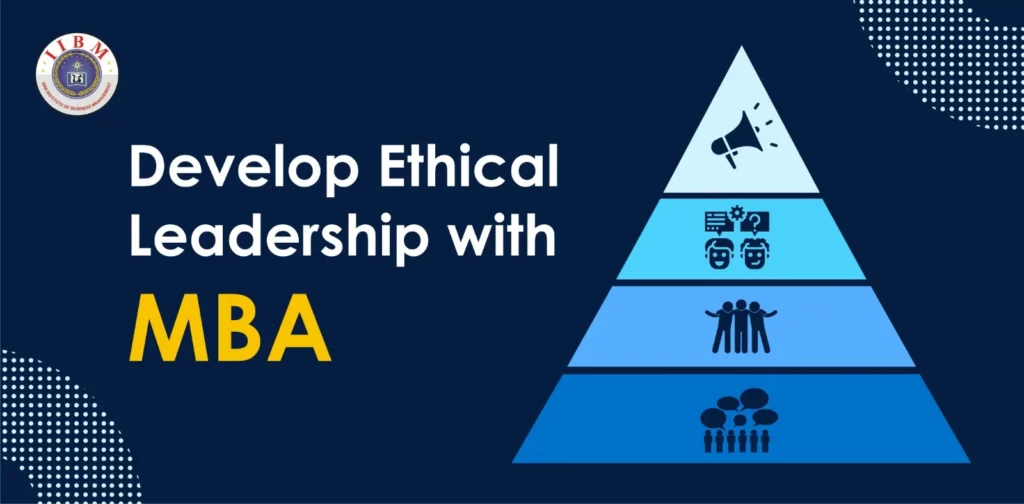
Ethical Leadership in MBA
In the dynamic landscape of business, the role of ethical leadership cannot be overstated. This article explores the significance of ethical leadership in the MBA program at IIBM Institute, delving into its principles and impact on shaping tomorrow’s managers.
Understanding Ethical Leadership
Definition and Importance
Ethical leadership involves making decisions guided by moral principles and values. It’s crucial in business as it establishes trust, fosters a positive organizational culture, and contributes to long-term success.
Role in MBA Education
Ethical leadership is a cornerstone in MBA education, providing future leaders with the necessary skills to navigate complex ethical dilemmas in the corporate world.
IIBM Institute’s Approach to Ethical Leadership
Integration into the Curriculum
IIBM Institute seamlessly integrates ethical leadership into its curriculum, ensuring that students understand the ethical dimensions of decision-making.
Real-world Case Studies
By incorporating real-world case studies, IIBM Institute allows students to apply ethical principles to practical situations, preparing them for the challenges they may face in their careers.
Building Ethical Decision-Making Skills
Ethical Dilemmas in Business
MBA students at IIBM Institute engage in discussions around ethical dilemmas, honing their ability to make principled decisions in ambiguous situations.
Practical Exercises for MBA Students
The institute goes beyond theory, offering practical exercises that simulate real-world scenarios, enhancing students’ ethical decision-making skills.
Impact on Tomorrow’s Managers
Career Advancement
MBA graduates with a foundation in ethical leadership find themselves in high demand, with increased opportunities for career advancement.
Long-term Organizational Success
Ethical leadership contributes to the long-term success of organizations by fostering a positive reputation and maintaining stakeholder trust.
Conclusion
In conclusion, ethical leadership at IIBM Institute goes beyond theoretical concepts, providing MBA students with the practical skills needed to become ethical leaders in tomorrow’s business world.
Frequently Asked Questions
How does IIBM Institute assess students’ understanding of ethical leadership?
The institute employs a variety of assessment methods, including case analyses, group discussions, and presentations, to evaluate students’ grasp of ethical leadership principles.
How can ethical leadership skills acquired at IIBM Institute benefit graduates in their professional lives?
Graduates with a foundation in ethical leadership find themselves well-equipped to handle ethical challenges, gaining a competitive edge and contributing to the success of their organizations.




